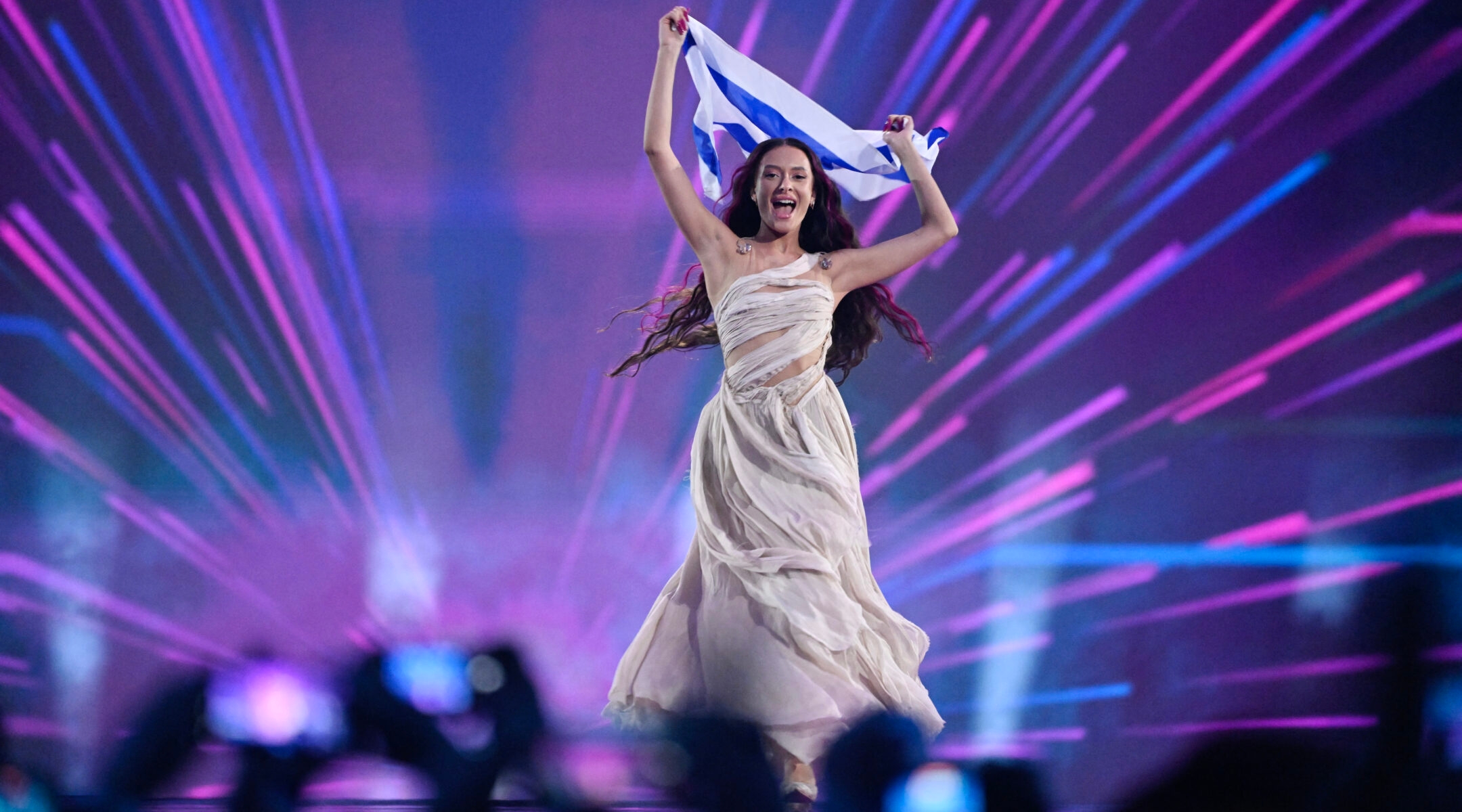(JTA) — Despite steep backlash including protests from other competitors, Israel’s Eden Golan placed fifth in the Eurovision Song Contest on Saturday night after delivering a rousing final performance of her song “Hurricane.”
The competition’s winner is determined by a complex system in which juries for each participating country allocate half of all votes, while the public contributes the other half. Golan’s success — which exceeded expectations set in betting markets before the competition — was fueled by the popular vote, which Israel won in 14 countries plus a new category for voters not located in any of the participating countries. Israel did not win any country’s jury vote.
Golan’s strength in the popular vote came in contrast to the intense protests against her and Israel’s participation in the song contest amid the Israel-Hamas war in Gaza. Tens of thousands of people protested in the streets of Malmo, Sweden, during the competition held there, and Golan was reportedly advised to remain in her hotel room under the protection of security.
The tensions crept into the competition as well. During a rehearsal, a Finnish representative seemingly refused to say that her country had awarded points to Israel, while Ireland’s Bambie Thug, another contestant, said she “cried” after Golan made the final and would have boycotted had she herself not been performing. A journalist asked Golan at a press conference whether she felt that “by being here you bring risk and danger for other participants;” she drew cheers after responding that the contest was “safe for everyone.”
Iolande, representing Portugal, wore fingernails decorated with patterns suggesting Palestinian solidarity in the final, despite rules set by the European Broadcasting Union prohibiting political speech during Eurovision. Earlier, a contestant drew a reprimand for wearing a keffiyeh, or Palestinian scarf.
Golan returned to Israel on Sunday, ahead of the country’s somber Memorial Day. “I felt the love from the people, and you cannot understand how much it helped me,” she said during a press conference. Alluding to the Israeli hostages who remain in Gaza, she added, “I represented the country and was our voice for everyone who needs to be brought home now.”
A second Israeli contestant, Tali Golergant, who was representing her country of Luxembourg, came in 13th. Switzerland’s Nemo won for the song “The Code,” about the artist’s journey to self-awareness as a nonbinary person.
JTA has documented Jewish history in real-time for over a century. Keep our journalism strong by joining us in supporting independent, award-winning reporting.






